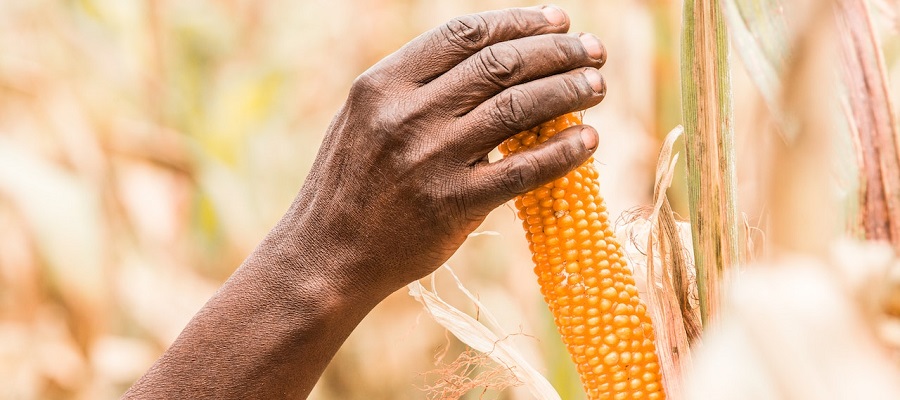Do you want to know how much corn is in a bushel? Well, let's get to it without wasting your time. There are about 56 pounds (25,4012 kg) of corn in a bushel. The exact weight can vary slightly depending on the type of corn and how it is stored. A bushel is a unit of volume that is used to measure grain, produce, and other dry goods. It is equivalent to about 35 liters or 8 gallons.
What's a bushel?
A bushel is a unit of volume that is used to measure grain, produce, and other dry goods. It is often used as a standard unit of measurement in agriculture and commerce. In the United States, a bushel is equal to 32 dry quarts or 8 dry gallons. This is a volume measurement, so it is not affected by the weight of the contents. A bushel of corn, for example, will always equal the same volume regardless of whether the corn is shelled or in the cob, or whether it is wet or dry. The weight of the contents, however, will vary depending on the type of grain or produce and its moisture content.
Difficulties when buying corn as a wholesaler
There are several challenges that a buyer may face when purchasing corn in wholesale quantities. Some of these challenges may include:
-
Price volatility: Corn prices can fluctuate significantly due to a variety of factors, including weather conditions, crop yields, and global demand. This can make it difficult to predict the price of corn and to budget accordingly.
-
Quality: The quality of corn can vary depending on factors such as the variety of corn, the growing conditions, and how it is stored. It is important for the buyer to carefully inspect the corn to ensure that it meets their standards for quality.
-
Transportation: Corn is a bulky and heavy commodity, which can make it expensive to transport. This can be a challenge for buyers who are located a long distance from the supplier.
-
Storage: Storing large quantities of corn can be a challenge, as it requires a dry and well-ventilated space to prevent spoilage and deterioration.
-
Risk management: As with any commodity, there is always a risk of loss or damage due to factors such as pests, disease, or natural disasters. It is important for the buyer to consider how to mitigate these risks and to protect their investment.
How do I buy corn online?
Just click here to get a quotation. There are several other ways to purchase corn online, depending on your needs and preferences. Some options include:
-
Online marketplaces: You can purchase corn from online marketplaces such as Amazon or eBay. These websites allow you to browse a variety of products from different sellers and make purchases directly through the platform.
-
Manufacturer or supplier websites: Many corn manufacturers and suppliers have their own websites where they sell their products directly to consumers. You can typically find a wide range of corn products on these sites, including cornmeal, corn flour, cornstarch, and more.
-
Specialty websites: There are also many websites that specialize in selling specific types of corn or corn-based products, such as heirloom corn or organic corn. These sites may have a more limited selection but may offer unique or hard-to-find products.
To purchase corn online, you will typically need to create an account with the website, add the desired products to your shopping cart, and complete the checkout process by entering your payment and shipping information. It is important to carefully read the terms and conditions of the sale and to understand the policies of the website, such as their return and refund policies, before making a purchase.
What you need to know when importing corn
Importing corn can be a complex process that involves a number of steps and considerations. Some of the key issues to consider when importing corn include:
-
Regulations: Each country has its own regulations governing the import of corn and other agricultural products. These regulations may include requirements related to labeling, packaging, and inspection, as well as tariffs and other fees. It is important to research and understand the regulations of the importing country before attempting to import corn.
-
Documentation: In order to import corn, you will typically need to provide a variety of documentation, including customs declarations, invoices, and certificates of origin. It is important to ensure that all required documentation is complete and accurate to avoid delays or other problems.
-
Shipping: Corn is a bulky and heavy commodity, which can make it expensive to transport. You will need to consider how to transport the corn, whether by air, land, or sea, and what type of shipping container to use. You will also need to arrange for customs clearance and any other necessary logistics.
-
Financing: Importing corn can be a significant financial investment, and you may need to secure financing to cover the costs of purchasing, shipping, and storing the corn. There are a variety of options available for financing imports, including loans, letters of credit, and trade finance instruments.
-
Risk management: As with any international trade transaction, there is always a risk of loss or damage due to factors such as currency fluctuations, political instability, and natural disasters. It is important to consider how to mitigate these risks and to protect your investment.


